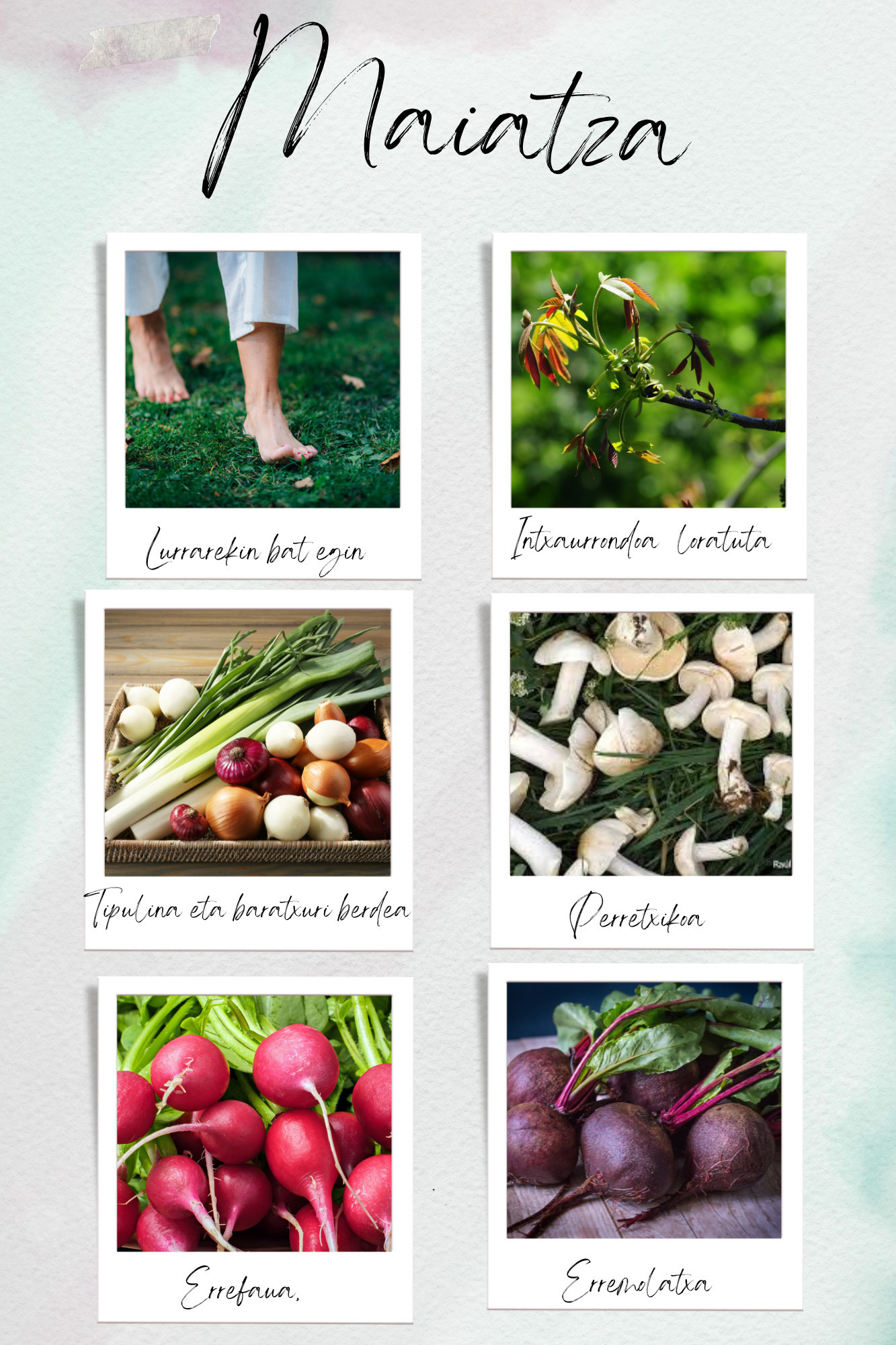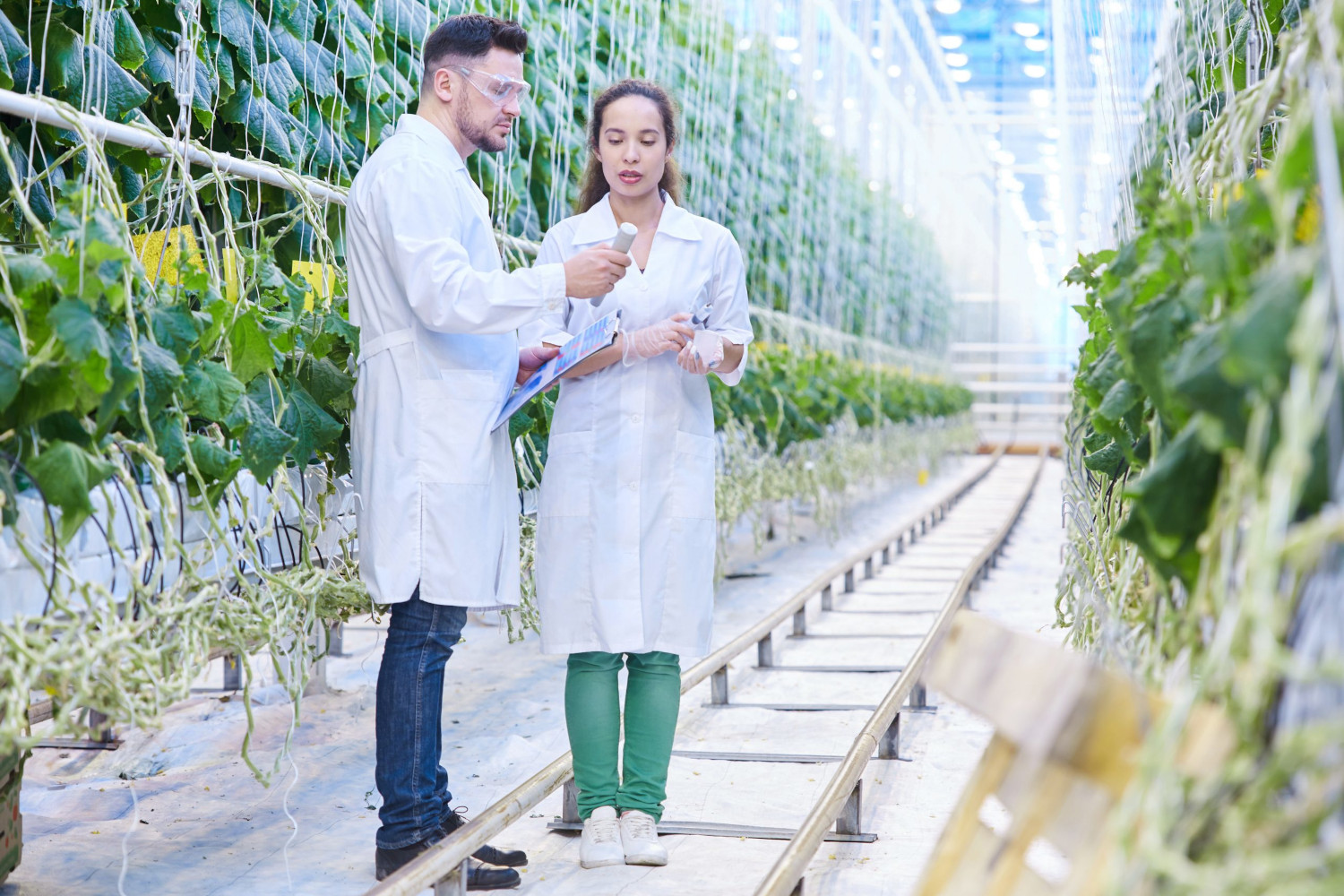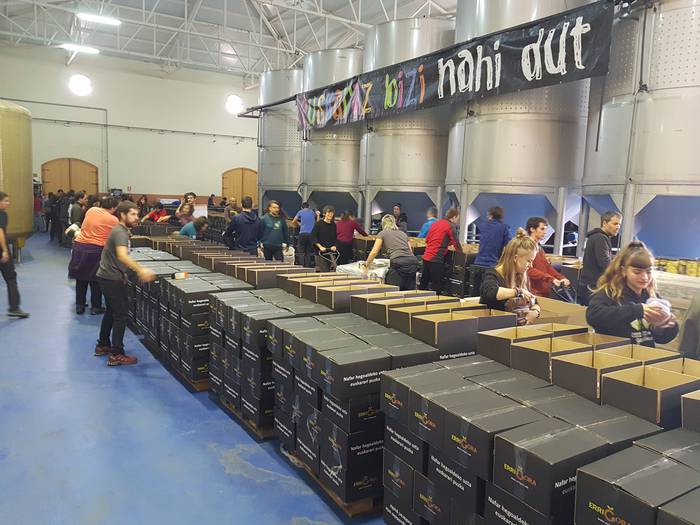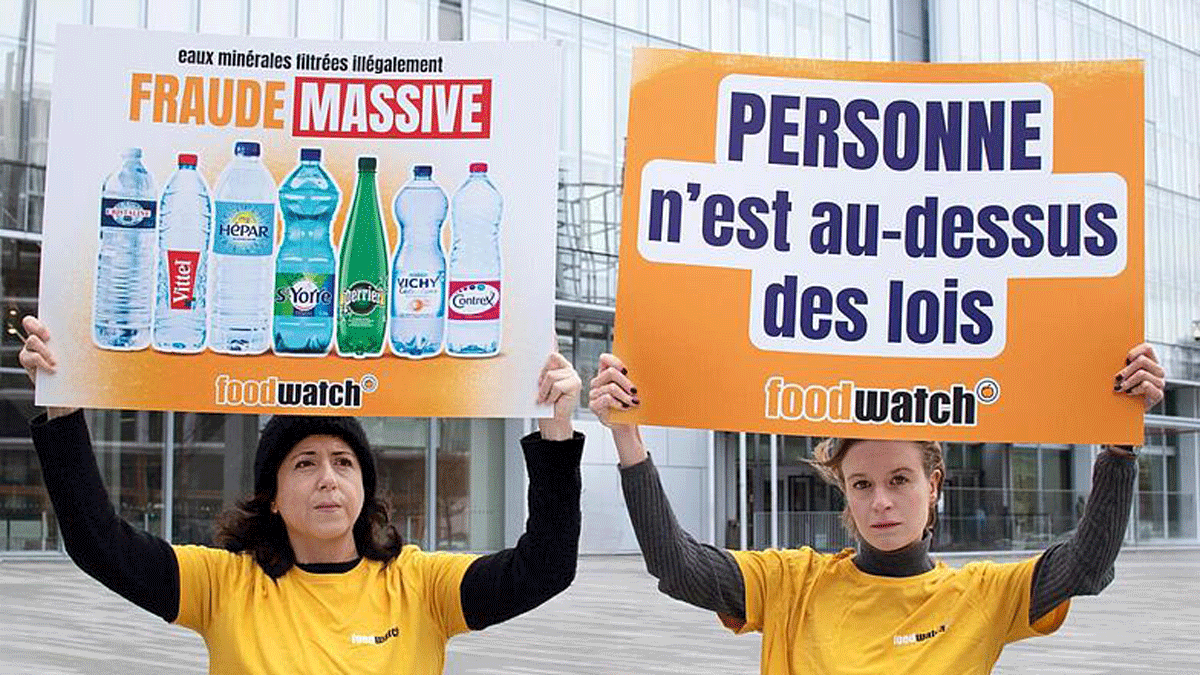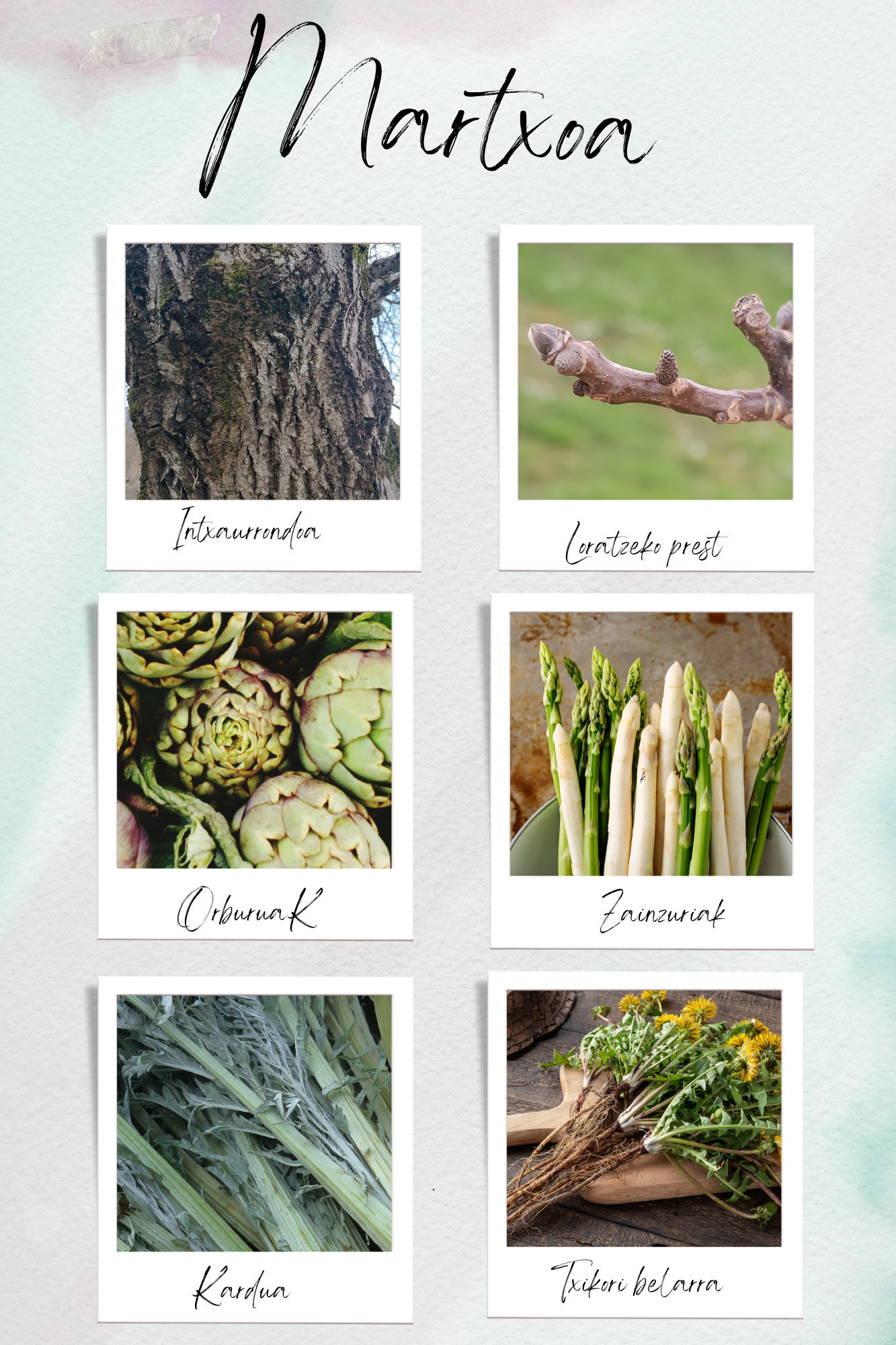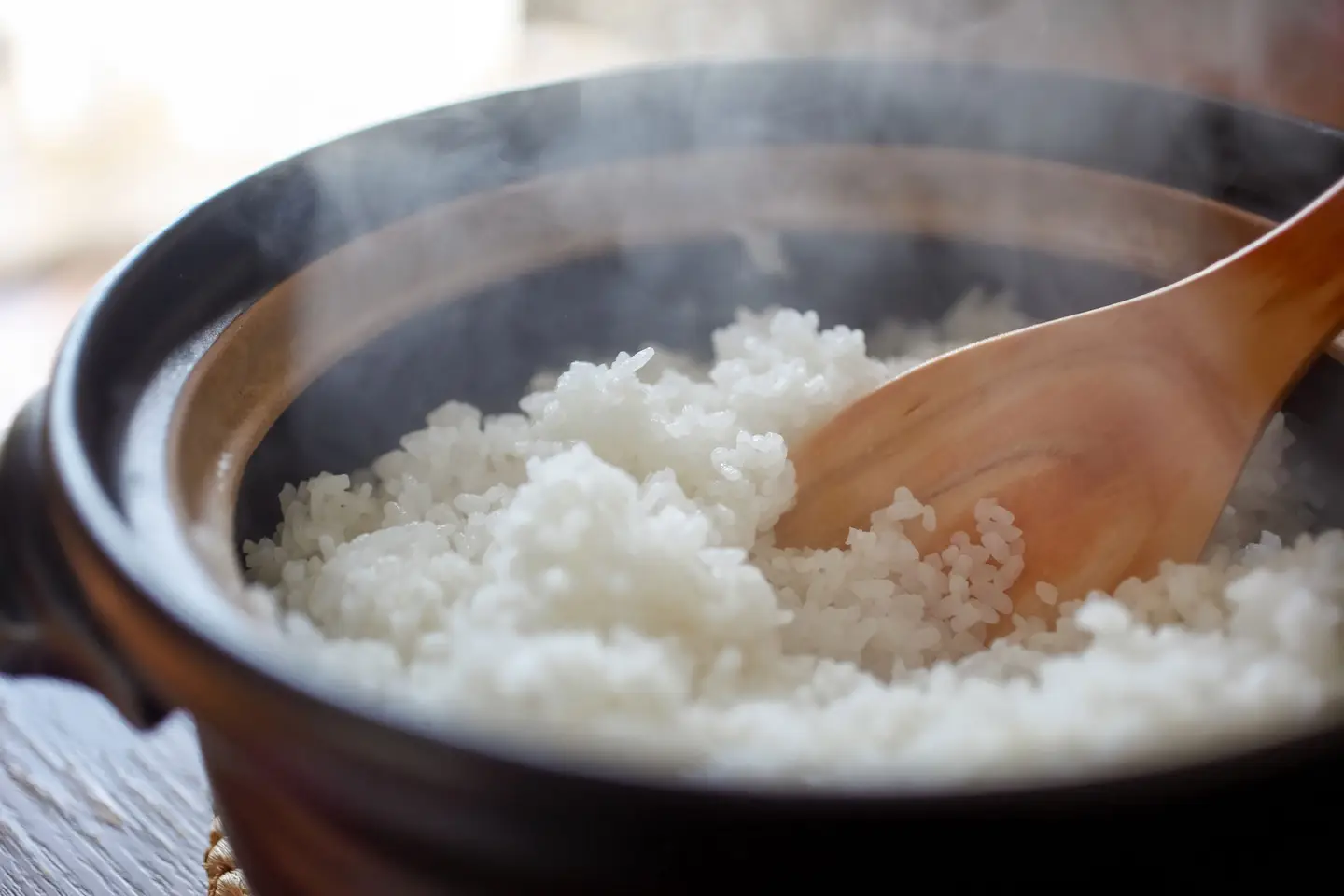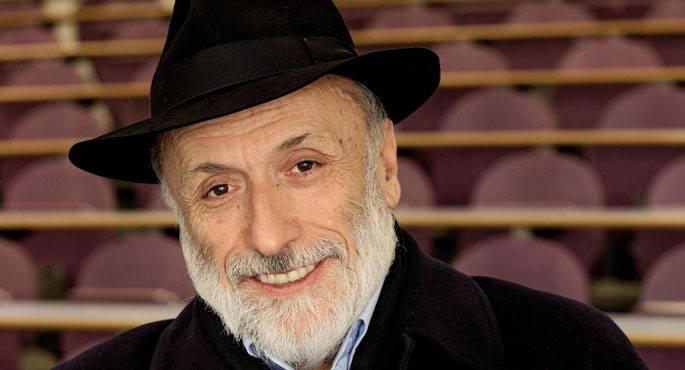
You claim the right to eat “good, clean and fair”.
Because in these convulsive times, the quality of food is measured in these parameters. In the history of gastronomy, human beings are content with good production, but today there is no quality food without taking into account the environment and social justice. Instead of being passive consumers, it is up to us to be informed citizens. It is our job to ensure that all the products we buy meet these three criteria. That is why the co-producer concept seems to me to be much more appropriate than the word ‘consumer’. To be a co-producer is to assume the responsibility of knowing the agricultural reality and the production of what we are going to eat, to pay a price so that the farmer can live with dignity and to ensure that the production chain of that benefit does not harm the environment. Otherwise it's very easy, very good products can be produced intensively, but what are we losing water in its name, destroying biodiversity and sterilizing land? We are committing an injustice to future generations. The consequences are not paid for by us, but by the generations that happen to us, and at this rate, they will not find the nutritional legacy that we find. It's a matter of care, nothing else.
In vain you will tell those who rule the world that the earth is not inherited from their ancestors, but lent to their heirs.
Mark Magandi says that the land and the resources of the land should be for everyone, but from there only a few eat. Our struggle is to make these resources available to all. The data doesn't lie. With 7 billion people in the world, we produce 12 billion people and yet 1 billion starve. The situation is tragic. We are a society that has lost sensitivity and the memory of hunger. Our ancestors, who really went through hunger, respect much more food. It does not matter to us that in many countries of the world children are starving to death or that many communities have serious problems cultivating the land. How do you explain that every year every European has about 320 kilos of food left and throws them in the trash? It's not fair.
However, the chemical industry continues to claim that intensive cultivation is the only way to feed the world.
Since the paradigm is to produce food at very low cost, intensive production is essential. But intensive production doesn't care if it respects the environment, if it sterilizes soils, if it abuses water or if it breaks down biodiversity. Intensive farming lives at every moment and all it cares about is selling the profits at the lowest possible cost to fill the pockets. It's a paradigm that has touched the wall. In this entropic crisis that has caught us completely, everyone is obliged to reflect. The resources of the land are not inexhaustible and we are about to deplete ourselves. If we want a sustainable world, these practices must be of the past.
What do you think of the latest studies that pesticides and altered drift organisms cause cancer?
These are very serious investigations, they have to be taken into account. Associations such as ours, and anyone who has the floor in the media, must be pedagogical work, we have a moral obligation to disseminate and enhance information. Saying high that we're killing people every time we use pesticides and naturally altered organisms is part of food education. We cannot think that we can continue to produce this way. Taking action is the task of politicians, but also of civil society. We cannot leave everything in the hands of politicians, we have to be protagonists. Being a protagonist of our everyday lives is the only way to change politics.
It is true that today chemical firms have the colonized power and have in their hands all the cards to condition politics and politicians. But I think we can turn it around. This system has collapsed and will not be able to go deep down all the time. It is up to us to take root new roots, to show that the return to the bases is not a backward turn. The worst thing is that no one knows what it's going to be in 30 years' time. Imagine if we continue that way in 2050, we're going to be 9 billion people in the world, we're going to produce enough for 18 billion, and that waste will be ingestible. That is why I say that the future is beginning today, that we have to reduce the production we waste, that we are beginning to respect natural resources again and that the fairest consideration of those who work the land is essential.
Is that not what makes a new way of becoming a farmer?
It is obvious. Dignity must be returned to the trade. The reconstruction of producer and co-producer networks is the only airway for a new crop. Let us not fool ourselves, agriculture is dead as we know it. If we want to offer dignity to the farmer, the rights to leave and to illness must be recognized, but to do so new forms of distribution must be established in the plant. The large division has destroyed the possibility of the farmer being self-employed. The baserritart will be the only producer in the world who does not decide the price of his work, which is imposed on him. That is an injustice. That is why this new distribution needs a good direction, which strengthens the local economy rather than travel on certain continents. The defense of local cultivation is the only way to break the card game and distribute the cards.
Now, in the name of eating “bio”, however, we consume food that comes from the other side of the world, disregarding the baserritars of the people.
That is barbaric. At the moment, biological food is not available to everyone, and what he believes the future of agriculture is just for the rich is going nowhere. A farmer who has taken the step of Biora only to sell his profits at a higher price has a rare conception of agriculture. Does that mean that the one who has money can eat bio and the others are doomed to shit? That is not fair. We have to create the conditions for making quality products available, as it is a right for everyone to eat well, clean and fair. To do this, we need food education, we can't continue to play as crpulas, we can't think that we just eat for lunch. No, we must respect the product, learn to eat in harmony with nature and with our body. The crappy vision of food is a pure vision of food. Our society has believed that with food produced and imported by industry it was enough, without realizing it was wrong. Imagine, instead of giving young people the chance to live with the earth and from the earth, we have underestimated the figure of the farmer as if he had no future. Paradoxically, in the United States of America, in the realm of fast food, a silent revolution is taking place that is putting that idea on its head. People are aware of the importance of land and the garden, and Europe, looking in the mirror of that revolution, will have no choice but to reflect on the disaster of breaking social cohesion between farmers and citizens. This reflection is the only way to reconstruct social justice.
Do you ask that this relationship with the land be intensified so that vegetable gardens are set up in all schools, colleges and universities?
Of course. Last week, thanks to a Peruvian chef, we managed to get the Government of Peru to stimulate the idea of putting the garden in all schools and schools in Peru. What does this mean? That the Peruvian authorities have become aware of the importance of the educational function of a vegetable garden. When a child sows a seed and sees how fruits or vegetables come, it receives an extraordinary formative dimension that encompasses natural essences, history, memory, identity, ecology or respect for work. In our society, the family transmission of farming from generation to generation is over. Ours is a post-industrial society and children and young people do not know the products or animals of the earth. So we need to create spaces to give that education naturally, to somehow reconstruct the umbilical cord with nature, and the orchard is nothing but a formula for it. In addition, it offers children the opportunity to be protagonists, to value the work of farmers first hand and to have a direct knowledge of the reality. In fact, we are currently rejecting food according to aesthetics. Where has that been seen? What does it matter if a carrot is wrong or the potato brings a little tugurium with it? That's nature, but no, we've put aesthetics above taste.
In many ways, is that why we talk so much about the nutritional and economic values of food and about the pleasure of eating so little?
What you want, we live in a society that spends more on slimming than on eating. For me, the concern and pleasure of eating are intimately linked. Unfortunately, we've created schizophrenic situations around food. I'm sick of how the coroner photographed the dead body with the perfect dishes from the recipes section of magazines and the aseptic coldness of most television cooking programs. That's communicative pornography. It's true that there are a lot of people who have problems with food. That is why I say that food education is the first education that needs to be done in life. We at Slow Food not only work for the protection of the environment, we also claim the pleasure of eating. The real pleasure, however, does not come from that crappy character and from that criminal economic system. I do not believe in God, but if I had to believe it, I would believe that the two things that man needs for his subsistence, eating and reproducing, were based on pleasure. That is why I say that eating is the first agricultural action. If, like in one way, I'm pushing one crop and rejecting another. If, as a local production, I eat bio, I buy environmentally friendly profits, I am doing an agrarian action, a political action. If I step in and buy chemicals, I know what I'm pushing. Politics is not just voting. Every time you buy something, you're doing politics, doing agriculture. Eating is a political choice.
What does the relationship with time in this society have to do with that political choice?
There's the root of Slow Food's philosophy. Fast food has two despicable things. On the one hand, the approval of taste. Everyone has to eat the same and all foods taste Ketchup. They do not respect the gastronomic diversity of each country. On the other hand, it seems to them that food is like gasoline, it doesn't have to be expensive, it has to fill the deposit immediately, and if you can leave as soon as possible, the better! That is to belittle food. Food is a passionate, affective issue, generating companionship, intimate... We cannot say that food is filling the reservoir! But let no one think that Slow Food was born to eat slowly. Slowness is not a characteristic value, the person too slow is a stupid. Slowness is homeopathic medicine. A society that attaches great importance to speed, which believes that speed is the solution to all problems, is doomed to make continuous mistakes. The fall causes her to pave over and over again. That is why we have to find our natural rhythm again. We seek a more natural dimension of life, not the schizophrenic dimension imposed on us by this society. Slow Food is also Slow Life.
“Gastronomia tradizionala ez da kasualitate bat, identitate eta ingurune baten arteko mendeetako elkarbizitzaren emaitza baizik. Ni hemengo ardi buru beltzez ari naizenean, badakit lurrari eta identitateari loturiko oso ezaugarri bereziak dituen produktu batez ari naizela. Ezagutza hori indartzea ezinbestekoa da, eta horretarako gastronomoek ingurunea errespetatu behar dute eta ingurumen arloan lan egiten dutenak gastronomoak izan. Horretan oinarritu behar dira politikariak finantzak gobernatzeko. Izan ere, orain finantzek dute politikaria gobernatzen”.
1949ko ekainaren 22an Bra-n (Italian) sortu zen kazetari, soziologo, eta kritiko gastronomikoa, Slow Food fundazioaren (www.slowfoodfoundation.com) sortzaile eta buru izateagatik da ezaguna. 2004an, Turinen, Terra Madre nazioarteko sarea abiarazi zuen 150 herrialdetako 8.000 ekoizle bilduz. 2008an, The Guardian egunkariak planeta salbatzeko gai diren 50 pertsonalitateen zerrendan sartu zuen.
Florentzia, 1886. Carlo Collodi Le avventure de Pinocchio eleberri ezagunaren egileak zera idatzi zuen pizzari buruz: “Labean txigortutako ogi orea, gainean eskura dagoen edozer gauzaz egindako saltsa duena”. Pizza hark “zikinkeria konplexu tankera” zuela... [+]
Udaberrian orain dela egun gutxi sartu gara eta intxaurrondoa dut maisu. Lasai sentitzen dut, konfiantzaz, bere prozesuan, ziklo berria hasten. Plan eta ohitura berriak hartu ditut apirilean, sasoitu naiz, bizitzan proiektu berriei heltzeko konfiantzaz, indarrez, sormen eta... [+]
“Hondakinik ez platerean!”. Hori zen kontsigna gure txikitako otorduetan. Janariak zeozer sakratu bazukeen, batez ere ogiak; lurrera erori eta, jasotakoan, musua eman behar zitzaion. Harik eta adin zozoan mamia baztertzeko moda etorri zen arte, lodiarazten zuelakoan... [+]
Bizkaigane elkarteak elikadura burujabetzan oinarritutako proiektua du Errigoitin (Bizkaia), 1983tik. Instalazioak dauden lur eremutik aterarazi nahi du lur jabeak elkartea. EHNE Bizkaia sindikatuak adierazi duenez, instalazioek lege eta administrazio eskakizun guztiak betetzen... [+]
Martxoaren 10etik 26ra izango da udaberriko kanpaina. 'Beste modura, denona de onura' lelopean arituko dira gertuko ekoizpena, banaketa eta kontsumoa babestu eta sustatzeko, ager zonaldean euskara hauspotzen duten bitartean. Apirila amaieratik aurrera jasoko dira... [+]
Euskal Herriko bi muturretatik datoz Itziar (Bilbo, 1982) eta Ekaitz (Erriberri, 2002), sortzen ari den Burujabetzaren Aldeko Mugimenduaren berri ematera. Euskal Herrian diren burujabetza prozesu ugariak arloz arlo bultzatu eta indartu nahi ditu BAMek. Lan horretan hasteko,... [+]
Ur kontaminatua ur mineral eta ur natural gisa saltzen aritu dira urte luzeetan Nestlé eta Sources Alma multinazional frantsesak. Legez kanpoko filtrazioak, iturburuko ura txorrotakoarekin nahasi izana... kontsumitzaileen osagarria bigarren mailan jarri eta bere interes... [+]
Emakume bakoitzaren errelatotik abiatuta, lurrari eta elikadurari buruzko jakituria kolektibizatu eta sukaldeko iruditegia irauli nahi ditu Ziminttere proiektuak, mahai baten bueltan, sukaldean bertan eta elikagaiak eskutan darabiltzaten bitartean.
Zuhaitza esnatzear dago, kimuak ageri dira adarretan. Gutxi falta da loraldirako, laster aro berria hasiko du, indarberrituta.











